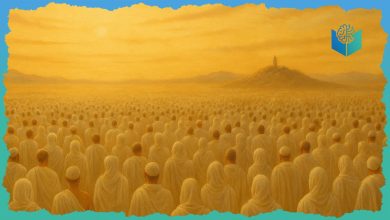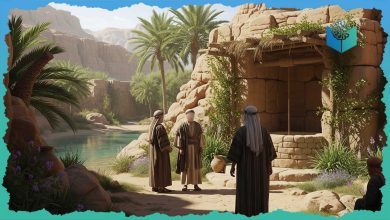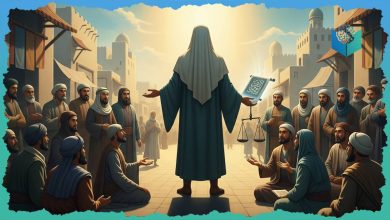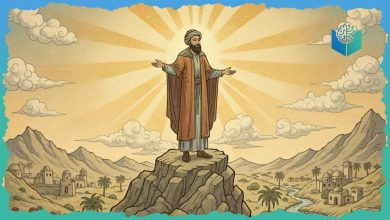The Prophet Isa (Jesus) in Islam
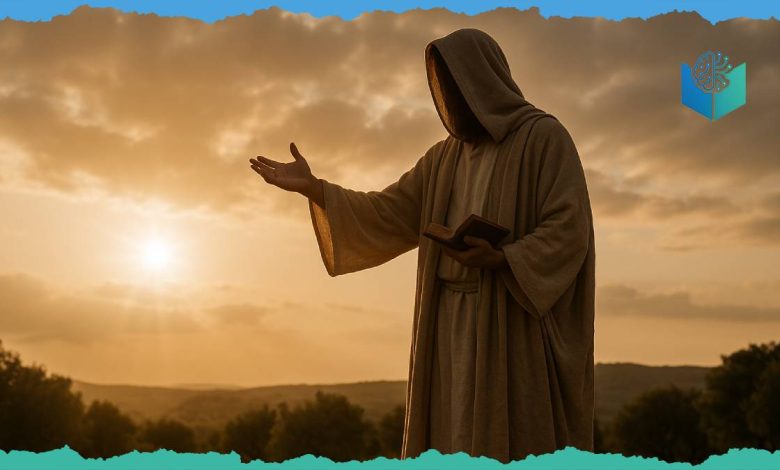
Among the prophets of God, Prophet Isa (Jesus, peace be upon him) is one of the most beloved and honored figures in Islam. His life story, his mission, and his extraordinary miracles are recounted in the Quran with deep reverence. Unlike the image often shaped by later traditions, Prophet Isa in Islam is presented as a humble servant of Allah, a messenger of truth, and a sign of divine power.
This article explores the miracles of Prophet Jesus, his message, and how the Quran highlights his unique place in the history of prophethood. It also serves as a guide for those seeking to understand the role of Isa (PBUH) in Islam with clarity and respect.
Prophet Isa in Islam: A Messenger of Mercy
To begin, it’s important to understand who Isa (PBUH) is in the Islamic worldview. Muslims believe that Isa was among the greatest prophets of God, sent to guide the Children of Israel back to pure worship. His mission was not separate from earlier prophets but part of the same chain of guidance that included Nuh (Noah), Ibrahim (Abraham), Musa (Moses), and finally Muhammad ﷺ.
The Quran makes clear that Isa (PBUH) was not divine himself but a chosen servant of Allah:
“The Messiah, son of Mary, was no more than a messenger; many were the messengers that passed away before him.” (Quran 5:75)
This verse sets the foundation for how Muslims understand Isa: not as the son of God, but as a prophet and messenger whose role was to deliver Allah’s message and embody faith through his character.
The Miraculous Birth of Jesus in the Quran
One of the most striking features of Jesus in the Quran is his miraculous birth. His mother Maryam (Mary, peace be upon her) is honored as one of the most virtuous women in history. The Quran narrates her devotion to Allah and the miraculous conception of Isa without a father.
“She said, ‘My Lord, how can I have a child when no man has touched me?’ He said, ‘So it will be; Allah creates what He wills. When He decrees a matter, He only says to it, “Be,” and it is.’” (Quran 3:47)
This miracle emphasizes Allah’s limitless power, similar to the creation of Adam (PBUH), who had no parents at all. It also highlights the purity and honor of Maryam, whose name is mentioned more often in the Quran than in the Bible itself.
Miracles of Prophet Jesus in the Quran
The miracles of Prophet Jesus are central to his story in Islam. Each miracle was a sign from Allah to affirm his prophethood, not proof of divinity. The Quran recounts several extraordinary acts granted to him by Allah’s permission:

Speaking as an Infant
When Maryam faced accusations after giving birth, the infant Isa miraculously spoke in her defense:
“He said, ‘Indeed, I am the servant of Allah. He has given me the Scripture and made me a prophet.’” (Quran 19:30)
This miracle was a clear declaration of Isa’s mission from the very beginning of his life.
Healing the Blind and the Sick
Isa (PBUH) healed those born blind and those suffering from leprosy, illnesses seen as incurable at the time. These miracles reflected Allah’s mercy through His prophet.
Raising the Dead
Another extraordinary miracle was the raising of the dead, again by Allah’s permission. This demonstrated not Isa’s power but Allah’s, showing that life and death belong only to Him.
Creating a Bird from Clay
The Quran narrates that Isa fashioned a bird out of clay and, by Allah’s command, breathed life into it:
“I create for you out of clay the form of a bird, then I breathe into it, and it becomes a bird by Allah’s permission.” (Quran 3:49)
These miracles were signs, not spectacles. They were meant to guide people to the truth, reminding them of Allah’s power and reinforcing Isa’s role as a messenger.
The Message of Isa (PBUH)
The message of Isa (PBUH) was consistent with that of all prophets of God: worship Allah alone, live righteously, and prepare for the Hereafter. The Quran quotes him as saying:
“Indeed, Allah is my Lord and your Lord, so worship Him. That is the straight path.” (Quran 3:51)
This simple yet powerful message corrected distortions in earlier beliefs and practices. Isa (PBUH) did not bring a new religion but revived the essence of faith: submission to Allah, which is Islam.

Jesus in the Quran vs. Other Narratives
Understanding Jesus in the Quran requires distinguishing between Islamic teachings and later interpretations found elsewhere. In Islam, Isa (PBUH):
- Was a servant and messenger of Allah.
- Was not crucified; rather, Allah raised him up in protection.
- Will return near the end of times as a sign of the approaching Day of Judgment.
These points highlight how the Quran preserves his story as part of the unified guidance of all prophets of God.
The Character of Prophet Isa in Islam
Beyond miracles, Isa’s (PBUH) character is a shining example of humility, patience, and devotion. He lived simply, called for compassion, and challenged injustice. His life reminds Muslims that true strength lies not in wealth or power but in steadfast faith and good conduct.
When Muslims study the message of Isa (PBUH), they see a prophet who embodied mercy, who forgave those who wronged him, and who devoted his life to Allah’s cause. This makes him an inspiring role model, especially for those seeking spiritual purity and service to others.
The Return of Prophet Isa
Islamic teachings also emphasize the future return of Isa (PBUH) before the end times. This event is part of Islamic eschatology and is supported by Quranic verses and authentic Hadith. Isa will return to restore justice, defeat falsehood, and reaffirm the oneness of Allah.
His return will unite believers and confirm that the message of all prophets of God was one: worship Allah and live by His guidance.
Lessons from the Life of Isa (PBUH)
The life of Isa (PBUH) provides timeless lessons for Muslims today:
- Faith in Allah’s power – His miraculous birth and miracles remind us that nothing is impossible for Allah.
- Humility – Despite his miracles, Isa remained humble, always attributing power to Allah.
- Patience in trials – He endured rejection and opposition with grace.
- Compassion and mercy – His teachings highlight kindness as central to faith.
These lessons make Isa (PBUH) not just a historical figure but a living example for all who wish to strengthen their relationship with Allah.
Why Studying Jesus in the Quran Matters Today
In a world often divided by misunderstandings, learning about Jesus in the Quran helps build bridges of respect and dialogue. For Muslims, Isa (PBUH) is a reminder of Allah’s signs and mercy. For non-Muslims curious about Islam, his story demonstrates Islam’s deep respect for earlier prophets and its emphasis on continuity in divine guidance.

Conclusion
The story of Prophet Isa in Islam is one of faith, miracles, and divine wisdom. His miraculous birth, his extraordinary acts, and his timeless message all point back to Allah’s greatness. The miracles of Prophet Jesus were never meant as entertainment but as signs to guide hearts. The message of Isa (PBUH) was the same as all prophets of God: to worship Allah alone and live with righteousness.
For Muslims, Isa (PBUH) is a source of inspiration and a reminder that true honor lies in servitude to Allah. His life and message continue to call believers toward humility, compassion, and devotion.
To discover more Quranic stories and the wisdom of prophets, visit ayaat.ai, where the guidance of Allah’s Book is made accessible for reflection and growth.
Q&A
Who is the prophet Isa in Islam?
In Islam, Prophet Isa (Jesus, peace be upon him) is one of the greatest prophets of God, born miraculously to Maryam without a father. The Quran describes him as a messenger who performed miracles by Allah’s permission and called people to worship Allah alone.
What happened to prophet Isa according to Islam?
According to Islam, Prophet Isa (Jesus, peace be upon him) was not crucified or killed, but Allah raised him up in honor and protection. The Quran states that he will return near the end of times as a sign of truth and justice.
Who killed prophet Isa in Islam?
In Islam, no one killed Prophet Isa (Jesus, peace be upon him); Allah saved him from crucifixion. The Quran says it was only made to appear so, and Allah raised him up to Himself (Quran 4:157–158).

